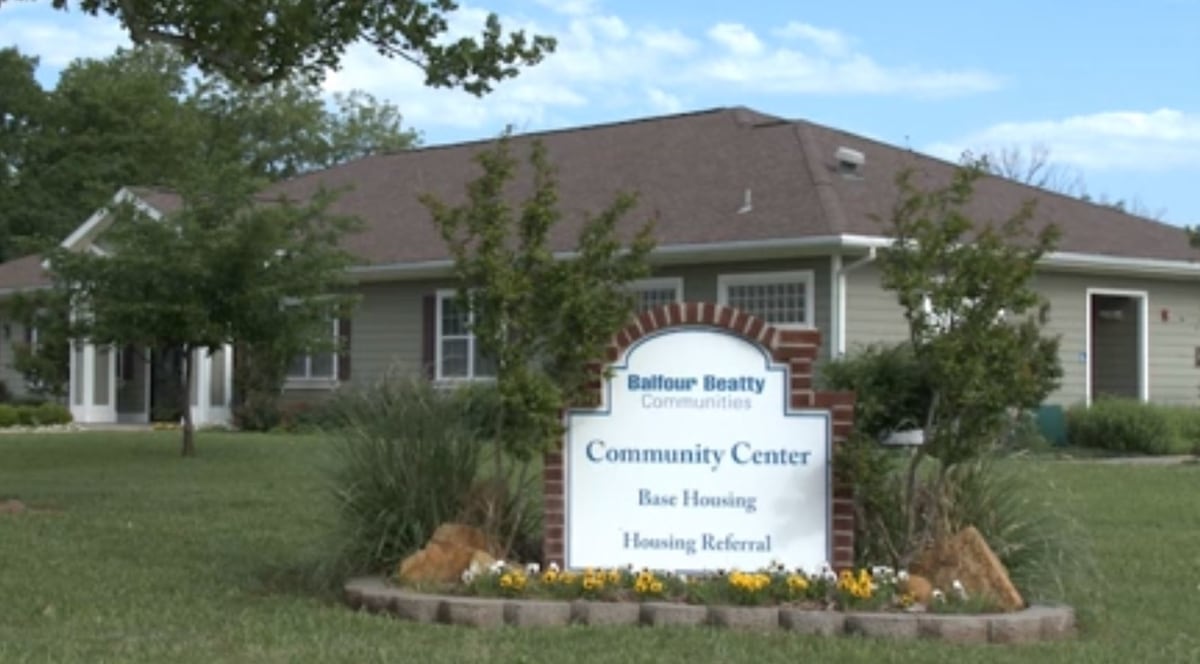The Air Force has issued a stern warning to the company that operates two-thirds of its privatized housing projects that unless there is “prompt and substantial improvement” in the company’s performance, service officials will start formal action against the company.
By the end of the year, Balfour Beatty Communities officials must submit a comprehensive improvement plan “in order to assure safe and healthy living conditions of our airman and their families,” stated the letter, signed by John W. Henderson, assistant secretary of the Air Force for installations, environment and energy.
In the extreme, worst case scenario, if the issues aren’t resolved, it could result in termination of the lease.
"These failures are unacceptable and have seriously eroded confidence by senior Air Force leadership in [Balfour Beatty’s] ability to provide military families with safe, quality housing,” wrote Henderson, citing a growing list of failures across the company’s 21 Air Force housing projects,
RELATED

Henderson cited a recently discovered issue at Tinker Air Force Base, Oklahoma, where a flooring subcontractor failed to test for asbestos before disturbing floor tiles in occupied houses. This can create asbestos dust that can spread in the home and can be inhaled. In July, it was discovered that Balfour Beatty failed to build firewalls between certain duplex housing units at Tinker, Henderson stated.
While Balfour Beatty is taking action to address the deficiencies, Henderson noted, “they represent a growing list of serious construction, maintenance, repair, management and oversight performance failures” across the company’s Air Force housing projects.
In addition to the 21 Air Force projects, Balfour Beatty Communities owns and manages another 34 projects on Army and Navy installations in the U.S.
In a statement provided by Balfour Beatty Communities, the company said it is “redoubling its efforts to improve maintenance outcomes at Tinker. … The company is committed to developing and executing a comprehensive maintenance plan, and is determined to ensure that the expectations of the Air Force are met.”
“The Air Force hopes the performance plan will resolve the issue,” said Air Force spokeswoman Laura McAndrews. “If the project owner performance failures cannot be resolved through informal processes, we can invoke the formal dispute resolution process.”
Formal disputes can have serious financial and operational consequences for a privatized housing project, she said. It could lead to an “event of default." In the extreme, that could lead to a default termination notice to the project owner — which could result in a number of actions ranging from legal action to the termination of the management agreement and/or the lease, she said.
Widespread problems with mold, lead paint, rodents and other issues across the services have been reported by Reuters, and spouses testified before Congress earlier this year.
Following a recent visit to Tinker, Sen. Jim Inhofe, R-Okla., said his trip confirmed additional problems military families are having with privatized housing on base.
“This is beyond unacceptable. No families should have to live like this, especially not our military families. I’m horrified and outraged at these conditions,” the senator said in a press release.
“My biggest disappointment was discovering new problems like the lack of firewall protections between newly built housing units and mold problems that persist because the root causes were never addressed. I have to ask, what other undiscovered problems exist?” Inhofe said.
Inhofe, is chairman of the Senate Armed Services Committee, which has included more than 35 new provisions in its version of the defense policy bill to address housing reform. He noted that Balfour Beatty officials testified in front of the committee that they would move quickly to address systemic issues.
“They have not. We put them on notice then, and now they have been put on notice by the Air Force that they have 90 days to fix these problems,” Inhofe stated.
According to Inhofe, all 292 duplex units built by Balfour Beatty on Tinker required repairs, including 77 units that needed substantial repairs for fire-rated construction between the housing units as required by code.
Balfour Beatty’s improvement plan must be comprehensive, with milestones and schedules, to remedy all of the company’s construction, maintenance, repair, management and oversight performance deficiencies, Henderson stated in his letter.
Henderson noted that Balfour Beatty has made progress in working with the Air Force Civil Engineer Center to accomplish an independent audit of the company’s maintenance and work order management for the 21 Air Force housing sites. The company has also made progress in its assessment of its higher-level oversight and quality control processes.
Karen has covered military families, quality of life and consumer issues for Military Times for more than 30 years, and is co-author of a chapter on media coverage of military families in the book "A Battle Plan for Supporting Military Families." She previously worked for newspapers in Guam, Norfolk, Jacksonville, Fla., and Athens, Ga.





